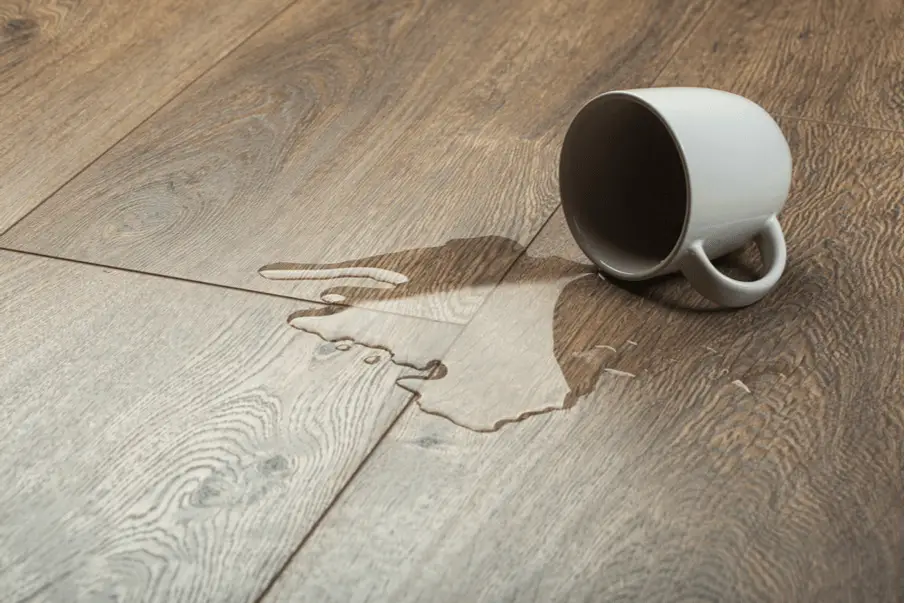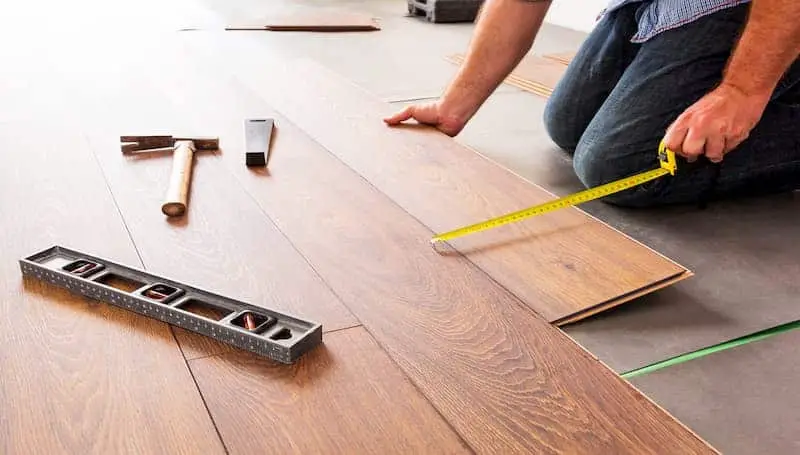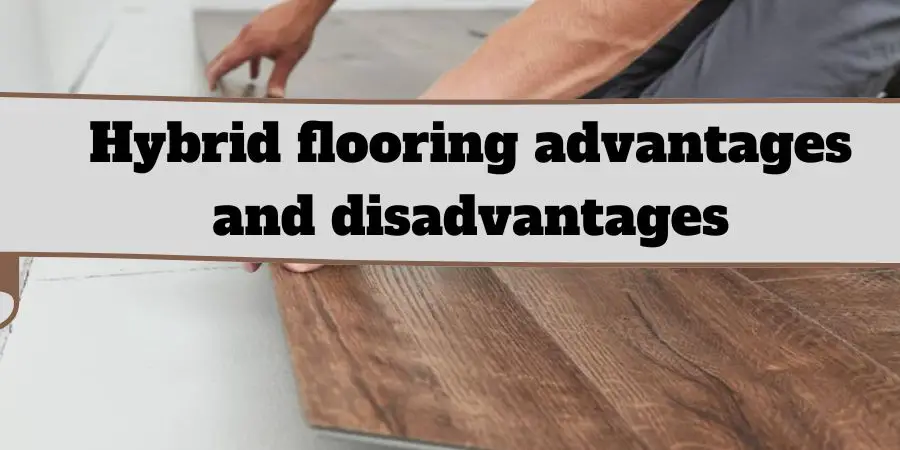Hybrid flooring is a type of flooring that combines the best features of laminate and vinyl flooring.
It typically consists of multiple layers, including a rigid core, a printed design layer, and a protective wear layer.
This combination of layers provides the durability and water resistance of vinyl flooring with the aesthetic appeal of natural hardwood flooring.
If you’re considering a new flooring option for your home, hybrid flooring may be worth considering.
In this article, we’ll explore the advantages and disadvantages of hybrid flooring and help you determine whether it’s the right choice for your home.
Advantages of Hybrid Flooring:
Durable:
Hybrid flooring is very durable because it is made from a combination of materials, including vinyl, wood, and stone.
This makes it a great option for high-traffic areas in your home, like the kitchen or living room. It is able to withstand a lot of wear and tear.
Waterproof:

Another advantage of hybrid flooring is that it is waterproof. Unlike hardwood flooring, which can be damaged by moisture, hybrid flooring is designed to resist water damage.
This means that you can install it in areas of your home that are prone to moisture, like bathrooms or laundry rooms, without worrying about damage.
Easy to Install:

Hybrid flooring is relatively easy to install.
Because it is a floating floor, it does not need to be glued or nailed down, which can make installation quicker and less expensive than traditional hardwood flooring.
Wide Range of Styles:
Additionally, hybrid flooring comes in a wide range of styles and colors, so you can find an option that matches your home’s decor. This allows you to choose from a variety of options to make your home look exactly how you want it to.
Disadvantages of Hybrid Flooring:
Slipperiness
One potential issue with hybrid flooring is that it can be slippery, particularly when wet.
This can be a concern if you have young children or elderly individuals living in your home.
To address this issue, you can choose a hybrid flooring option that has a textured surface to provide better grip.
Not Natural Look and Feel:
Because hybrid flooring is made from a combination of materials, it may not have the same natural look and feel as hardwood flooring.
However, many hybrid flooring options are designed to closely mimic the look and feel of hardwood flooring, so you can still achieve a natural aesthetic in your home.
Cost:
Another potential disadvantage of hybrid flooring is that it can be more expensive than other types of flooring, such as vinyl or laminate.
However, this cost is often offset by the durability and waterproof properties of hybrid flooring, which can save you money in the long run by reducing the need for repairs or replacements.





